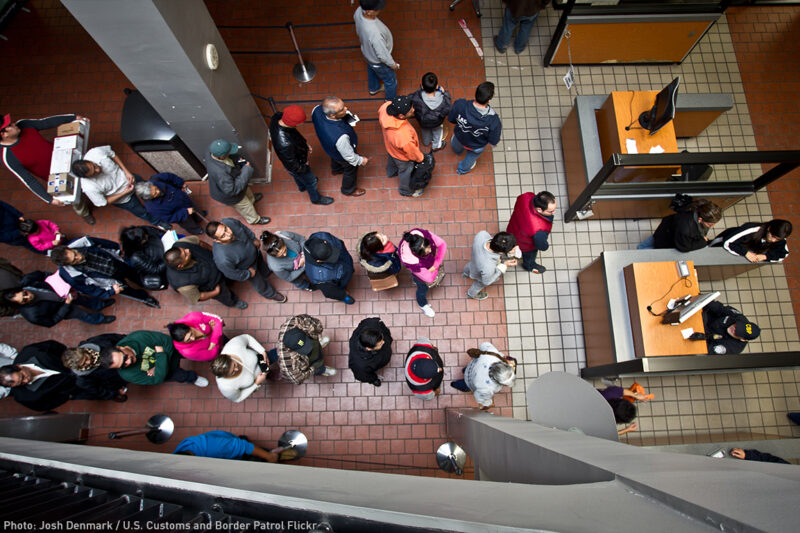According to the Government, People Under Arrest Have More Rights Than Travelers at the Border


When Americans are standing on U.S. soil, we have constitutional rights. The government can’t go into your house and see what’s in your drawers or poke around in the attic. Police officers can’t take your phone and thumb through your photos without a good reason.
If you’re at the border or certain airport areas, the administration believes those protections evaporate. Without cause, government officials argue they have full authority to require Americans to unlock their phones, laptops, and other digital devices; search through our apps and files; and even copy everything on them.
Not only do they believe they have this authority in theory — these searches are happening now, and they’re becoming more common every day. The U.S. government the number of searches at the border in the past year, according to new numbers released this week by Customs and Border Patrol. There are even stories of Americans when they refuse to unlock their phones at the border.
These searches are based on outdated legal interpretations created before most Americans were carrying around phones that hold nearly every detail of our lives. Looking through a person’s suitcase reveals a fraction of the information as going through his or her phone. It’s long-past time for Congress to make the law clear.
That’s why a bipartisan group of lawmakers in the Senate and House last week. Sen. Rand Paul (R-Ky.), Rep. Jared Polis (D-Colo.), Rep. Blake Farenthold (R-Texas) and I stood together to put commonsense limits on border searches of digital devices.
Our bill is simple. It says if agents want to search your digital devices at the border they need to get a warrant, just like law enforcement would need anywhere else in America. The bill includes an emergency exception to bypass the warrant requirement if time is a factor.
As things stand now, the government has taken the position that people who are under arrest on suspicion of committing a crime have far more rights than innocent Americans do at the border.
Second, it requires informed, written consent before the government may request and obtain assistance from a U.S. person to access data on a locked device or account, such as by disclosing their password or providing access. The bill also prohibits the government from delaying or denying entry to a U.S. person if he or she refuses to provide such assistance.
To put more sunshine on these practices, our bill also requires that the government create and publish statistics on the electronic border searches they conduct.
Our bill would bring the law at the border in line with the rules for searching Americans’ devices everywhere else. As things stand now, the government has taken the position that people who are under arrest on suspicion of committing a crime have far more rights than innocent Americans do at the border. A says police need a warrant to search the device of people who are under arrest, but despite that, border patrol continues to search innocent Americans without any suspicion.
So what’s standing in the way?
The government will say it needs this power to find criminals. But searching tens of thousands of people’s devices every year without cause is a tremendous waste of resources. The government should be focusing in on the real threats, not creating a digital dragnet for Americans returning to or leaving the United States.
The government says it doesn’t search that many Americans, although so far it has refused to provide data with exact numbers, But we already know that this administration is considering extremely invasive social media searches for people entering the country. And Trump floated even more extreme ideas during the campaign.
So please, help us spread the word that Americans don’t have to give up our constitutional rights just because we’re at the border. Let’s make our voices heard!
The ŔĎ°ÄĂĹżŞ˝±˝áąű supports the Protecting Data at the Border Act.


